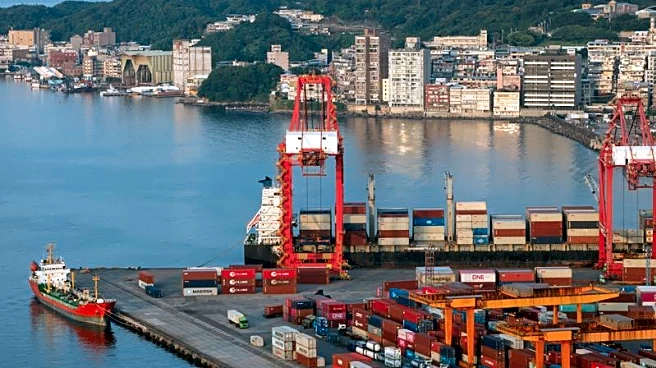What's Happening?
COP30, hosted in Belém, Brazil, is facing significant challenges in advancing global climate goals. Despite progress since the Paris Agreement, such as slower carbon emissions growth and increased clean energy deployment, the 1.5C target remains elusive.
Many countries have not submitted more ambitious climate plans, and the U.S. withdrawal from the Paris Agreement has strained international trust. Logistical issues in Belém have further complicated the summit. The Brazilian Presidency aims to focus on implementation rather than dialogue, with four key tests: shrinking the emissions gap, plugging the finance gap, slowing deforestation, and delivering on adaptation. The success of COP30 hinges on whether countries can commit to more ambitious targets and finance solutions.
Why It's Important?
The outcomes of COP30 are crucial for global climate action, as they will determine the trajectory towards the 1.5C warming target. Failure to achieve this goal could expose millions to extreme heat and push humanity beyond feasible temperature boundaries. The summit's ability to secure climate finance is vital for developing countries, which require substantial funding to mitigate and adapt to climate change. Additionally, addressing deforestation and adaptation measures is essential to prevent further environmental degradation and protect vulnerable communities. The geopolitical climate, particularly the U.S. stance, poses a significant challenge, potentially undermining multilateral efforts and the credibility of the COP process.
What's Next?
As COP30 progresses, countries are expected to submit revised Nationally Determined Contributions (NDCs) and make financial commitments. The Brazilian initiative, Tropical Forests Forever Facility, seeks to incentivize forest protection and channel funds to local communities. The summit will test whether negotiators can endorse finance recommendations and agree on adaptation metrics. The response from major economies like China and Europe will be critical in leading coalitions and maintaining momentum. The success of COP30 will depend on whether it can overcome geopolitical obstacles and deliver meaningful progress in climate action.
Beyond the Headlines
The ethical and cultural dimensions of COP30 are significant, as the summit addresses the rights of Indigenous Peoples and Local Communities in forest conservation efforts. The initiative to channel funds directly to these groups highlights the importance of inclusive and equitable climate solutions. The long-term implications of COP30 could redefine the role of multilateral negotiations in climate action, especially if major breakthroughs are achieved despite geopolitical tensions. The summit's focus on implementation rather than dialogue may set a precedent for future climate conferences, emphasizing tangible outcomes over discussions.
















